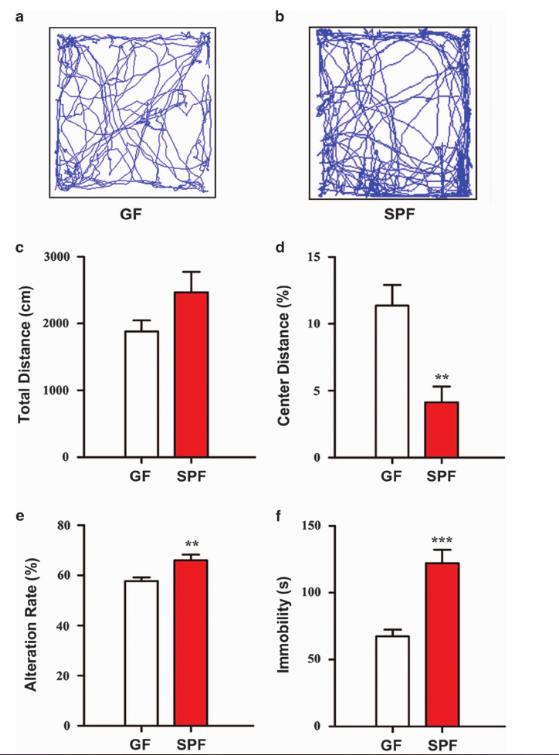💡 Major Depressive Disorder (MDD) is a prevalent mental health condition with a complex etiology. This study investigates the potential role of gut microbiota in inducing depression-like behaviour and explores the compositional alterations in the gut microbiome of MDD patients.
📍 Methods:
📌 Mouse Model Experimentation: Psycho-behavioural characteristics of germ-free (GF) and specific pathogen-free (SPF) mice were assessed to understand how gut microbiota influence behaviour. Fecal microbiota transplantation (FMT) from MDD patients and healthy individuals to GF mice was performed to assess the causal role of gut microbiota in depression-like behaviour.
📌 Human Study: Gut microbial communities of 58 MDD patients and 63 healthy controls were analyzed using 16S rRNA gene sequencing. Assessment of confounding factors such as antidepressant use, sex, age, smoking status, and body mass index was conducted.
📌 Metagenomic and Metabolomic Analyses: Samples from mice with ‘depression microbiota’ underwent metagenomic and metabolomic analyses to examine gut microbiome-host metabolism interactions.
📍 Results:
📌 Mouse Model Findings: GF mice exhibit decreased immobility time in the Forced Swim Test (FST), indicating depression-like behavior. Colonization of GF mice with ‘depression microbiota’ results in increased depression-like behaviors compared to ‘healthy microbiota,’ establishing transmissibility.
📌 Human Study Results: MDD patients exhibit specific alterations in gut microbiota composition, notably increased Actinobacteria and decreased Bacteroidetes. These alterations are independent of confounding factors such as antidepressant use, sex, age, smoking status, or body mass index.
📌 Metagenomic and Metabolomic Analyses: ‘Depression microbiota’ induces observable systemic metabolic alterations, with enhanced carbohydrate metabolic pathways and disturbances in amino acid metabolism. No specific perturbed metabolites are identified, suggesting a systemic metabolic perturbation as the underlying mechanism.
🔴 This study provides comprehensive evidence supporting the bidirectional interaction between gut microbiota and depression-like behaviour. The alterations in gut microbiota composition in MDD patients and their transmissibility to induce depression-like behaviors in mice highlight the potential role of gut microbiota in the pathogenesis of MDD. The study emphasizes the need for further research to identify specific gut microbiota species contributing to depression, paving the way for innovative gut-mediated therapies for MDD.
Link to the article: https://tinyurl.com/44vtycsz
